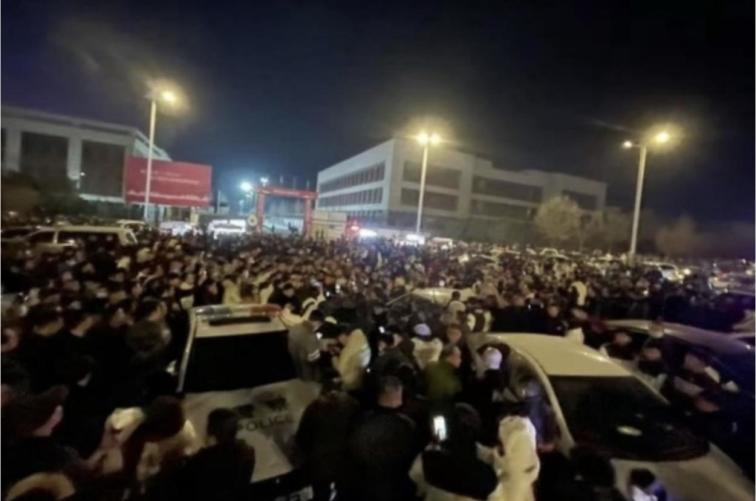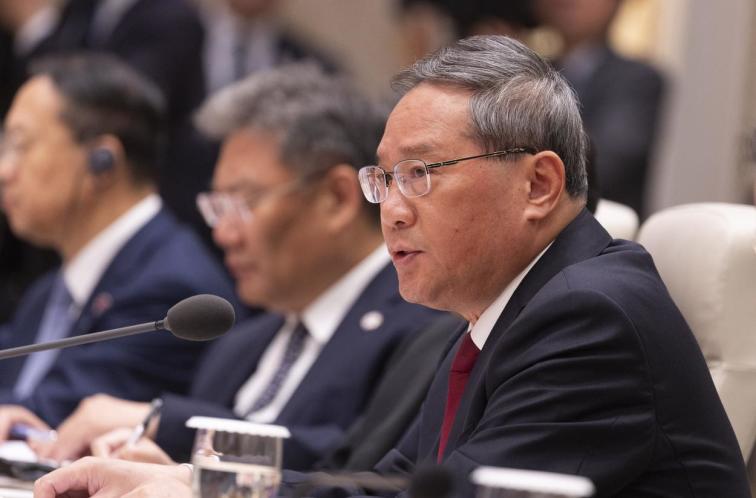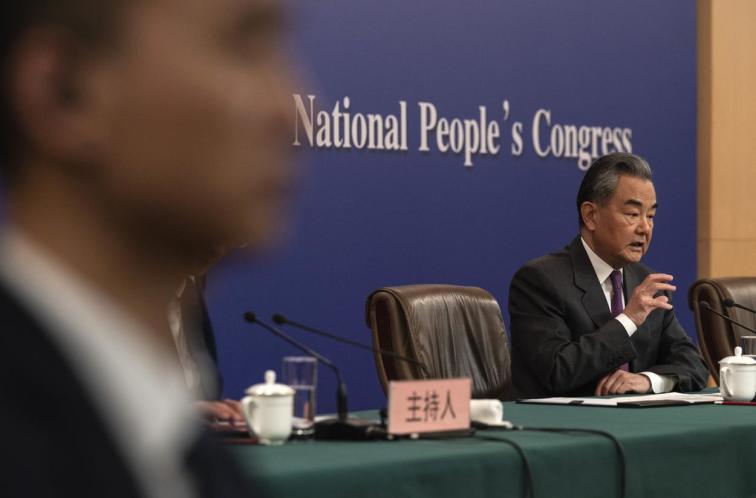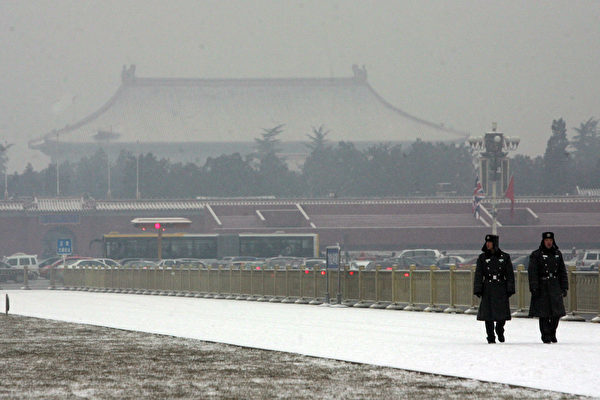Photo: Tiananmen Square under heavy clouds. (Lintao Zhang/Getty Images)
[People News] From January 6 to 8 this year, the Chinese Communist Party (CCP) held the Fourth Plenary Session of its 20th Central Commission for Discipline Inspection (CCDI). This was likely a deliberate arrangement by Xi Jinping, occurring before the CCP Central Committee's Fourth Plenary Session. During Mao Zedong's era, the CCDI did not exist; it was established during Deng Xiaoping’s time. Traditionally, the CCP Central Committee sessions precede CCDI sessions, reflecting the “Party leads everything” principle of one-party rule, including its oversight mechanisms.
However, in Xi Jinping’s era—especially in recent years—Xi has reversed this order, holding CCDI sessions before CCP Central Committee meetings. His purpose is clear: to leverage the CCDI as a weapon to conduct a purge within the Party, eliminate dissent, or intimidate opponents. This ensures he can dominate subsequent CCP Central Committee sessions, further consolidating or expanding his power.
In January 2024, the Third Plenary Session of the 20th CCDI was held. However, the Third Plenary Session of the 20th CCP Central Committee was delayed until July 2024. Similarly, in January 2025, Xi Jinping is again following this pattern, holding the CCDI's Fourth Plenary Session first and postponing the Central Committee’s Fourth Plenary Session until the last possible moment.
At the latest CCDI session, the Party’s media and Xi’s speeches repeatedly emphasized slogans such as “the anti-corruption campaign is a never-ending journey” and “self-revolution.” The phrase “the anti-corruption campaign is a never-ending journey” is essentially code for “corruption is a never-ending journey.” Anti-corruption campaigns are mere rhetoric, while systemic corruption persists as a fundamental feature of the regime. As for “self-revolution,” it translates to rejecting external oversight by the people and becomes synonymous with internal purges within the Party.
Xi Jinping proclaimed: “We must maintain the persistence and resilience to ensure the anti-corruption campaign remains a never-ending journey, sustain our strategic resolve and high-pressure stance, and relentlessly promote the integrated goal of making officials unwilling, unable, and unmotivated to engage in corruption. We must resolutely win this battle, this protracted war, and this total war.” If the goal is truly to curb corruption, it’s simple: implement political reforms, enact systemic changes, and transform the unchecked, lawless one-party dictatorship into a democratic system with accountability, checks, and balances. Such changes would obviate the need for these costly, chaotic “battles” and “wars” that exhaust resources and spread turmoil.
As public opinion both domestically and internationally often points out, genuine anti-corruption efforts require three key steps: Mandating officials to publicly disclose their assets. Establishing an independent judiciary. Ensuring freedom of the press. These are standard elements of governance in most normal nations. However, Xi Jinping refuses to adopt them. His focus is on maintaining one-party rule and the systemic corruption that underpins his power. By ensuring that “corruption remains a never-ending journey,” his so-called “anti-corruption campaign” can also remain perpetual. This allows him to wield his metaphorical sword of justice, cutting down any Party adversaries who threaten his power, and even silencing internal critics.
The so-called “self-revolution,” when uttered by Xi, is never aimed at himself but at others within the Party. It targets other Party factions and their families while shielding his own.
Clearly, everything serves Xi Jinping’s personal power calculus. While he lacks governance and leadership skills, his talent for political maneuvering and power struggles is exceptional—perhaps unparalleled. It’s tragic that a century-old Party with 90 million members has been reduced to a tool for one man’s dominance. Officials lament their plight but remain helpless.
Recently, Xi Jinping delivered a New Year’s speech, portraying an overly optimistic view of China’s economic and social conditions. His speech was self-congratulatory, full of empty platitudes disconnected from reality, offering no concrete measures to revitalize the economy. Consequently, Chinese and Hong Kong stock markets plunged. Xi’s 12 years in power have been marked by misrule, driving China into regression and failure, and dragging the CCP down with it. For the long-term interests of the Chinese nation, it remains unclear whether this will prove a blessing or a curse. However, from the perspective of other countries, it might ironically be seen as a boon.
(Adapted from Radio Free Asia)










News magazine bootstrap themes!
I like this themes, fast loading and look profesional
Thank you Carlos!
You're welcome!
Please support me with give positive rating!
Yes Sure!